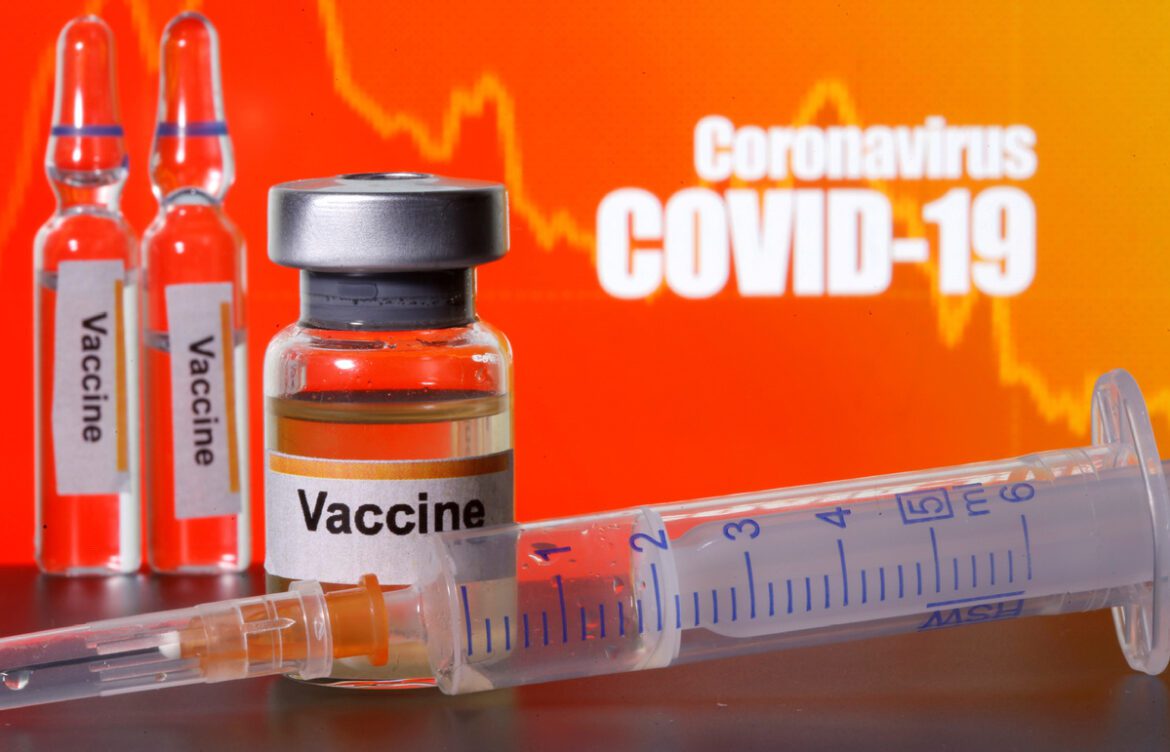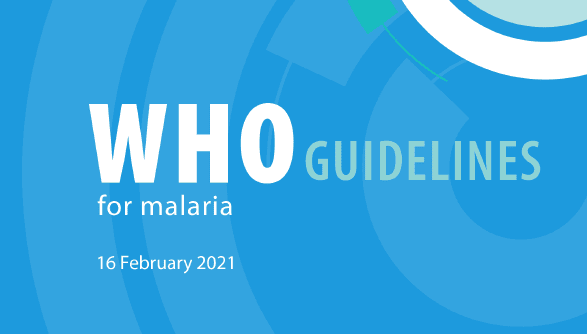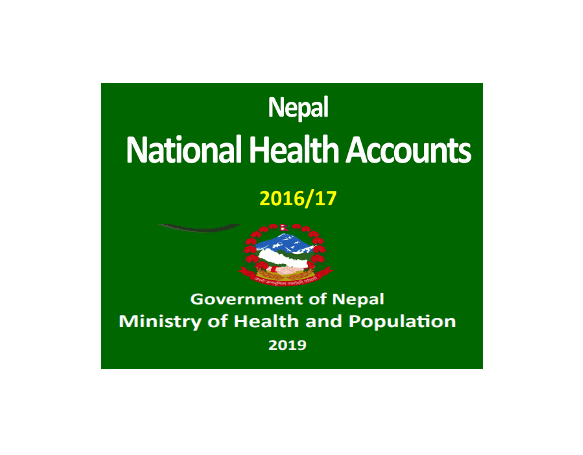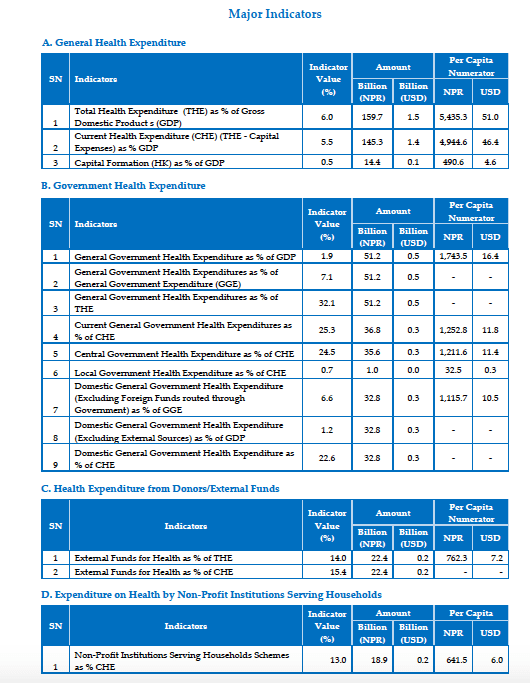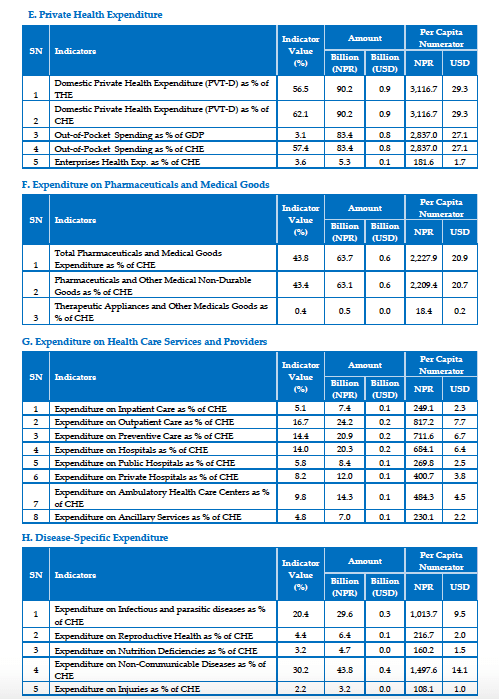Introduction
Nepal Health Facility Registry is an interactive web-based analytical visualization tool that has a Master Inventory List of Health Facilities in Nepal with unique identification code, location, type, level, and service information that can be used by the Government and public.
Objectives
- To provide detailed information about all health facilities and their location (on a live map).
- To permit filtering to show different kinds of facilities and the services they provide.
- To allow users to search for closest or preferred facility by name or type of service required.
- To give information on shortest distance between one facility and another to enable rational planning for referral.
- To visualize service coverage by population density at the Palika/Ward level.
- To help planners identify gaps or clustering of specific types of services.
- To enable creation of helpful graphs and tables.
- To be linked with other databases to show licensing information, emergency sites for earthquake or epidemic response, and much more.
Key features
- Search function: Search Health Facility by Province, District, Palika, Authority, Health Facility Type and Services
- View Health Facility with Map
- Dashboard
Example: List of Federal Health Facilities
| Code | Name | Authority | Ownership | Facility Type | Province | District | Palika |
| 1121400191 | KOSHI HOSPITAL_ BIRATNAGAR_MORANG | Government | Ministry of Health and Population | Central Hospital | Province No. 1 | Morang | Biratnagar |
| 2080700241 | NARAYANI HOSPITAL_PARSA | Government | Ministry of Health and Population | Sub-Regional Hospital | Province No. 2 | Parsa | Birjung |
| 3060800011 | National Gangalal Heart Center_ Kathmandu | Government | Ministry of Health and Population | Specialized Hospital | Bagmati Pradesh | Kathmandu | KATHMANDU |
| 3060800121 | BIRENDRA ARMY HOSPITAL_KATHMANDU | Government | Ministry of Defense | General Hospital | Bagmati Pradesh | Kathmandu | KATHMANDU |
| 3060800141 | TU Manmohan Cardiovascular Transplant Center | Government | Ministry of Education | Super Specialized Hospital | Bagmati Pradesh | Kathmandu | KATHMANDU |
| 3060800461 | BIR HOSPITAL_ KATHMANDU_KATHMANDU | Government | Ministry of Health and Population | Central Hospital | Bagmati Pradesh | Kathmandu | KATHMANDU |
| 3060800471 | KANTI CHILDREN HOSPITAL_KATHMANDU | Government | Ministry of Health and Population | Central Hospital | Bagmati Pradesh | Kathmandu | KATHMANDU |
| 3060800491 | SUKRARAJ TROPICAL HOSPITAL_KATHMANDU | Government | Ministry of Health and Population | Central Hospital | Bagmati Pradesh | Kathmandu | KATHMANDU |
| 3060800571 | National Trauma Center_Kathmandu | Government | Ministry of Health and Population | Specialized Hospital | Bagmati Pradesh | Kathmandu | KATHMANDU |
| 3061000201 | NEPAL ARMED POLISH FORCE (APF) HOSPITAL_KATHMANDU | Government | Ministry of Home Affairs | General Hospital | Bagmati Pradesh | Kathmandu | CHANDRAGIRI |
| 1121400191 | KOSHI HOSPITAL_ BIRATNAGAR_MORANG | Government | Ministry of Health and Population | Central Hospital | Province No. 1 | Morang | Biratnagar |
| 2080700241 | NARAYANI HOSPITAL_PARSA | Government | Ministry of Health and Population | Sub-Regional Hospital | Province No. 2 | Parsa | Birjung |
| 3060800011 | National Gangalal Heart Center_ Kathmandu | Government | Ministry of Health and Population | Specialized Hospital | Bagmati Pradesh | Kathmandu | KATHMANDU |
| 3060800121 | BIRENDRA ARMY HOSPITAL_KATHMANDU | Government | Ministry of Defense | General Hospital | Bagmati Pradesh | Kathmandu | KATHMANDU |
| 3060800141 | TU Manmohan Cardiovascular Transplant Center | Government | Ministry of Education | Super Specialized Hospital | Bagmati Pradesh | Kathmandu | KATHMANDU |
| 3060800461 | BIR HOSPITAL_ KATHMANDU_KATHMANDU | Government | Ministry of Health and Population | Central Hospital | Bagmati Pradesh | Kathmandu | KATHMANDU |
| 3060800471 | KANTI CHILDREN HOSPITAL_KATHMANDU | Government | Ministry of Health and Population | Central Hospital | Bagmati Pradesh | Kathmandu | KATHMANDU |
| 3060800491 | SUKRARAJ TROPICAL HOSPITAL_KATHMANDU | Government | Ministry of Health and Population | Central Hospital | Bagmati Pradesh | Kathmandu | KATHMANDU |
| 3060800571 | National Trauma Center_Kathmandu | Government | Ministry of Health and Population | Specialized Hospital | Bagmati Pradesh | Kathmandu | KATHMANDU |
| 3061000201 | NEPAL ARMED POLISH FORCE (APF) HOSPITAL_KATHMANDU | Government | Ministry of Home Affairs | General Hospital | Bagmati Pradesh | Kathmandu | CHANDRAGIRI |
Do you have a website? Looking for the best hosting provider? Here’s a discount code.
Latest Public Health Jobs
Latest Posts
- Multisectoral Action Plan for the Prevention and Control of NCDs, 2026-2030 (Draft)
- National Standard Operating Procedure for Early Warning, Alert and Response System (EWARS), 2025
- Priority Infectious Diseases for Community-Based Surveillance in Nepal
- Community Based Disease Surveillance Guideline, 2082
- Political declaration of the fourth high-level meeting of the General Assembly on the prevention and control of NCDs and the promotion of mental health and well-being
Thanks for visiting us.
Disclaimer: The resources, documents, guidelines, and information on this blog have been collected from various sources and are intended for informational purposes only. Information published on or through this website and affiliated social media channels does not represent the intention, plan, or strategies of an organization that the initiator is associated with in a professional or personal capacity, unless explicitly indicated.
If you have any complaints, information, or suggestions about the content published on Public Health Update, please feel free to contact us at blog.publichealthupdate@gmail.com.
#StayUpdated



